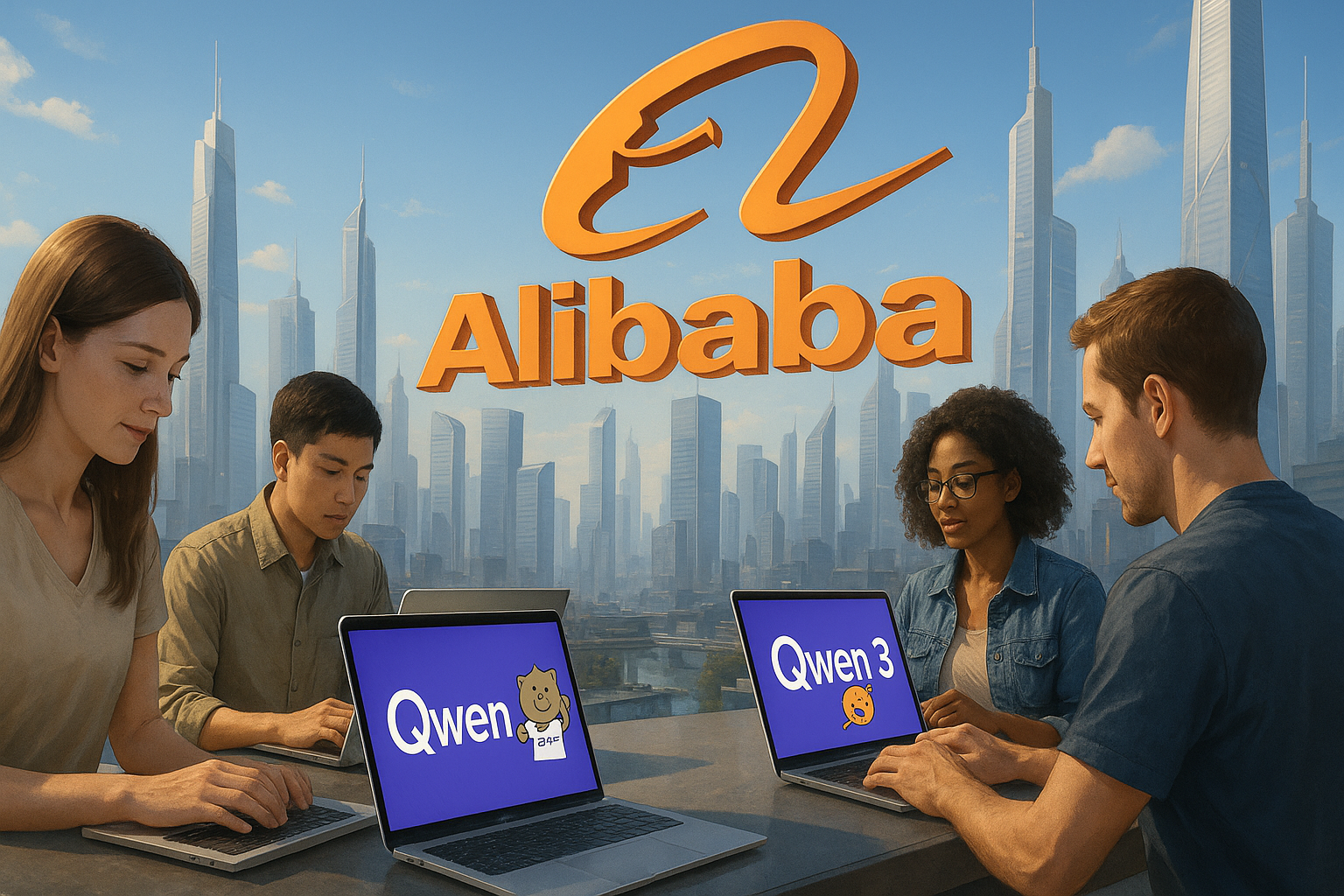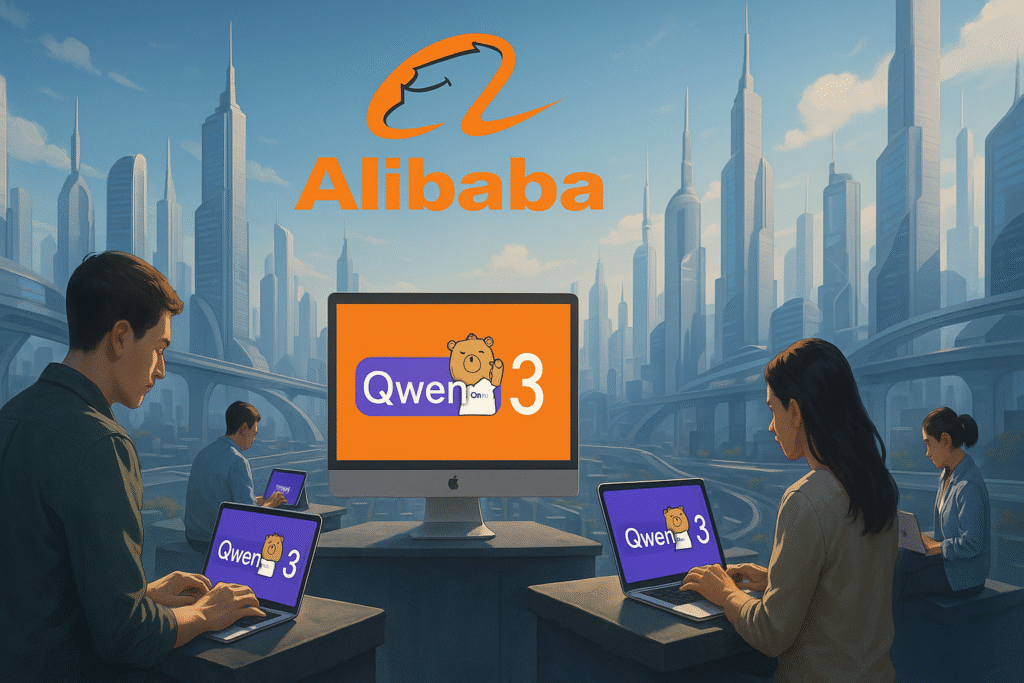
AI on Apple devices by Alibaba’s Qwen3 AI Models Bring Smarter, Local AI to the World

Alibaba has announced that its new AI models, called Qwen3, are now able to work directly on Apple devices like iPhones, iPads, and Macs. These models were designed to run on Apple’s MLX system, which allows AI to work entirely on the device itself. This means the models don’t need the internet to function, making them faster and more private. It also marks a big change in how AI made in China can be used with American technology.
The announcement was made in June 2025. With over 1.7 billion Apple devices being used across the globe, this new partnership is huge for both companies. It helps Alibaba reach more users with advanced AI on Apple Devices in countries like China, where content rules are different.
Apple’s MLX system is a special tool built into its devices to help AI models run locally. Most of the time, AI uses cloud computing, which means data has to go to the internet and back. But with MLX, everything stays on your phone, computer, or tablet. That helps protect user privacy and speeds things up.
In the past, MLX mostly worked with American-made AI models like those from OpenAI. Now, by including Alibaba’s Qwen3, Apple is opening up to new international options. Qwen3 is part of China’s big push to build strong, local AI that follows Chinese laws and can compete with Western tech.
AI on Apple Devices Key Features & Details
🧠 Two Ways of Thinking:
- Qwen3 can run in “deep thinking” mode to solve tough problems or use “quick response” mode for fast replies. This lets developers choose the best option for each situation.
🌍 Many Languages Supported:
- Qwen3 understands and can respond in over 119 different languages, making it useful for people all around the world.
📱 Fits All Device Sizes:
- From tiny phones to powerful desktop computers, Qwen3 can adjust and run well across different types of Apple hardware.
⚙️ Smart Power Management:
- The AI has something called a “thinking budget.” This helps it decide how much brainpower to use so it saves energy and battery while still working well.
🔄 Offline Operation:
- Because Qwen3 runs on the device, it doesn’t send user data to the internet. This keeps personal information safer and makes apps faster.
Why It Matters
This partnership shows a big change in how countries are working together in technology. It means a Chinese AI system can now work with American-made Apple devices. That’s important because it helps both companies grow in new areas while respecting different country rules.
For Apple, it means their devices can be more useful in China, where the government wants strict rules about what AI can do. For Alibaba, it means its AI on Apple Devices tools can be used by more people around the world without needing to build their own phones or computers.
This could also lead other companies to think about teaming up with international partners to build better, smarter, and safer technology together.
Real-Life Example: How Developers Can Use It

App makers can now build better apps that work even when offline, thanks to Qwen3. Imagine an app that translates languages, summarizes long texts, or helps people write messages—all without needing internet access.
For example, a developer in China could create a writing assistant that follows local content rules and works smoothly on an iPhone. A developer in Europe could use the same tools to build a voice app that helps people with disabilities. Because Qwen3 supports so many languages and runs fast, the possibilities are endless.
And since it all runs on the device, users can trust that their data stays private.
Sources & References:
- Reuters: Alibaba launches Qwen3 for Apple MLX
- arXiv: Qwen3 Technical Report
- Apple Insider: How Qwen3 supports Apple in China
Alibaba’s Qwen3 models now running its AI on Apple Devices show how AI can go global in a smart and respectful way. It proves that powerful AI can be used across borders, even when different rules exist. It also helps everyday users get smarter apps that protect their privacy and work faster, even offline.
Do you think more companies should build AI that works across different systems and countries? Like what Alibaba has made, AI on Apple Devices What kind of apps would you like to see using this kind of smart, private AI? Let us know your thoughts and follow AI Brief Now for more exciting updates on how AI is shaping the future!








